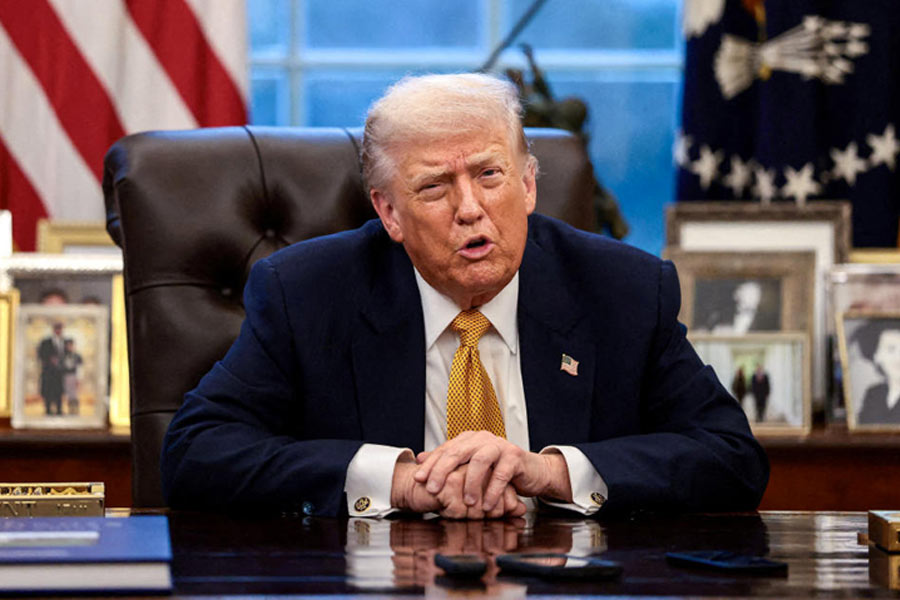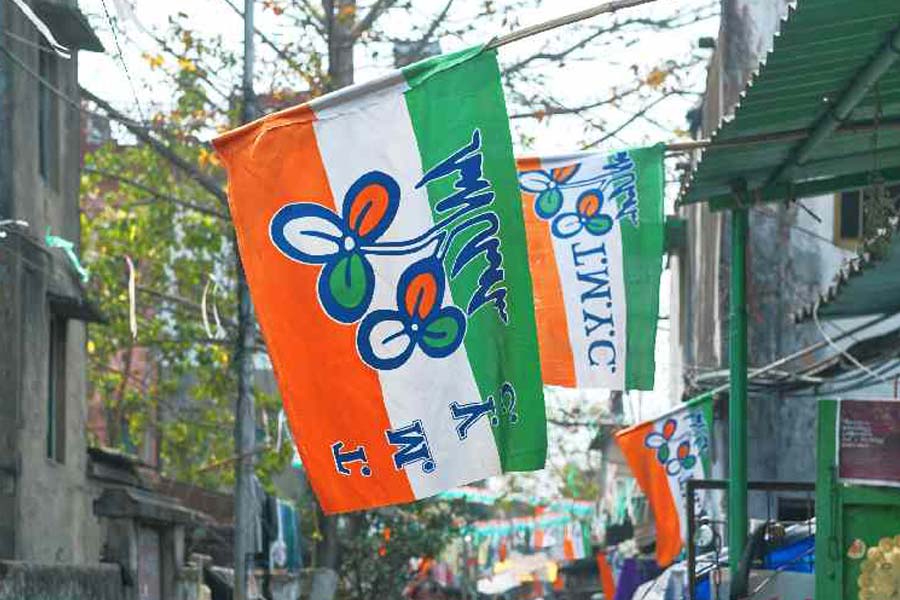 |
Kokrajhar, Oct. 1: Exactly two months ago to this day, Philip and Joba Tudu of New Dhordhora village under Kachugaon police station were accused of practising witchcraft, hounded and murdered.
The Tudus’ was not an isolated case but one in a series of grisly murders on the pretext of hunting down witches that have rocked Kokrajhar district of late. Alarmed by the magnitude of the problem, the All-Bodo Students Union (Absu) has decided to launch a concerted campaign against witch-hunting, widely prevalent among the Bodo and Santhal communities.
Absu president Rabiram Narzary told The Telegraph, “Our district committees have been directed to investigate such cases and pinpoint those responsible for such incidents. We are ready to help anybody and also take action if required.”
Narzary urged the administrative machinery to come forward in this regard. “The police should take strict action against witch hunters. If necessary, the entire village, where the incident has taken place, should be pulled up,” he added.
According to police sources, five or more lives are lost each year in the district to witchcraft-related incidents, though it is difficult to make reliable estimates since cases of witchhunting are not registered under a separate category.
“Non-cooperation by villagers and absence of witnesses hamper investigations. What is more surprising is that even educated people are sometimes involved,” said Anil Phukan, Kokrajhar superintendent of police. “Superstitions about health and poor medical facilities have made the people of the area susceptible to such beliefs. When there are no doctors to treat sick people, how can they be expected to believe in medical science? Any unidentified illness is, therefore, promptly attributed to the practice of black magic,” the Absu president said.
Echoing Narzary, Kanan Basumatary, general secretary of the All-Bodo Women’s Welfare Foundation, said, “People in remote villages have been under the spell of ojhas (exorcists) for centuries. In many places, he is the only available and affordable source of medical care. No individual or party can put an end to this. We need to fight it together.”
The leaders agreed that the best way to tackle this menace would be to generate awareness among the people.
Brajendra Kumar Brahma, president of Bodo Sahitya Sabha, said such incidents should not happen anymore since Bodo society now “has several organisations that can jointly tackle it”.
Admitting that very little has been done by the administration as well as non-governmental organisations in promoting awareness against witchhunting, A.K. Bhutani, deputy commissioner, Kokrajhar, said serious action and study needs to be taken up to root out the problem. “Simply visiting the site of the murders is not enough. A thorough study and investigation is needed,” he added.
The most sensational incident of witchhunting in Kokrajhar district occurred in May 2000 when the community, at a public meeting, decided to kill six persons for practising black magic. Ruparam Boro, Nijam Mushahary, Mohen Basumatary, Ranay Basumatary, his wife Rangow and Nijen Mushahary — all from Thaigirguri village under Kachugaon police station — were brutally killed after being branded dainis/dainas by a so-called ojha, believed to have supernatural powers. The villagers had apparently collected signatures in support of the killing.










